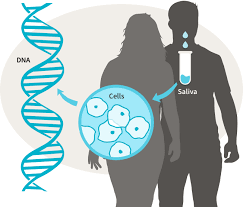
The Power of Genetic Testing
Genetic testing, also known as DNA testing, has revolutionized the field of medicine and science by providing invaluable insights into our genetic makeup. By analyzing an individual’s DNA, genetic testing can help identify potential health risks, determine ancestry, and even solve mysteries related to paternity and relationships.
Medical Applications
In the medical field, genetic testing plays a crucial role in diagnosing inherited disorders, predicting the likelihood of certain diseases, and personalizing treatment plans. By examining specific genes or chromosomes, healthcare professionals can tailor interventions to an individual’s unique genetic profile, leading to more effective and targeted care.
Ancestry and Genealogy
Many individuals are turning to genetic testing to uncover their ancestry and explore their family history. By comparing DNA markers with databases from around the world, people can trace their roots back generations and discover connections to different regions and ethnic groups.
Paternity Testing
One of the most common uses of genetic testing is in paternity testing. By comparing the DNA profiles of a child and potential father, paternity tests can conclusively determine biological relationships with a high degree of accuracy. This has significant implications for legal matters such as child support, custody arrangements, and inheritance rights.
Ethical Considerations
While genetic testing offers numerous benefits, it also raises ethical concerns related to privacy, consent, and potential discrimination based on genetic information. It is essential for individuals undergoing genetic testing to understand the implications of sharing their genetic data and to make informed decisions about how it is used.
The Future of Genetic Testing
Advances in technology continue to expand the capabilities of genetic testing, making it more accessible and affordable for individuals seeking answers about their health and heritage. As researchers uncover new insights into the human genome, genetic testing is poised to play an increasingly vital role in shaping personalized medicine and understanding our shared human history.
Key Insights on Genetic Testing: Costs, Common Disorders, Types, and Testing Scope
- How much does it cost to do a genetic test?
- What are the 10 common genetic disorders?
- What are the 7 types of genetic tests?
- What does the genetic testing test for?
How much does it cost to do a genetic test?
The cost of genetic testing can vary significantly depending on the type of test being performed, the complexity of the analysis, and the provider conducting the test. In general, basic genetic tests that focus on a specific gene or condition may be more affordable, with costs ranging from a few hundred to a few thousand dollars. However, more comprehensive tests that involve sequencing an individual’s entire genome can be much more expensive, often costing several thousand dollars or more. It is important to research different testing options and consult with healthcare professionals or genetic counselors to understand the costs involved and determine the best approach based on individual needs and budget constraints.
What are the 10 common genetic disorders?
Genetic disorders are conditions caused by abnormalities in an individual’s DNA. While there are thousands of known genetic disorders, some of the 10 most common ones include Down syndrome, cystic fibrosis, sickle cell anemia, Huntington’s disease, hemochromatosis, Marfan syndrome, Tay-Sachs disease, Duchenne muscular dystrophy, Thalassemia, and BRCA mutations linked to breast and ovarian cancer. These disorders can vary in severity and impact individuals in different ways, highlighting the importance of genetic testing for early detection and personalized treatment strategies.
What are the 7 types of genetic tests?
Genetic testing encompasses a variety of techniques that can provide valuable information about an individual’s genetic makeup and potential health risks. The seven types of genetic tests commonly used include diagnostic testing to identify or rule out specific genetic conditions, predictive and pre-symptomatic testing to assess the risk of developing certain diseases, carrier testing to determine if an individual carries a gene mutation that could be passed on to their children, prenatal testing to detect genetic abnormalities in a fetus before birth, newborn screening to identify genetic disorders early in life, pharmacogenomic testing to predict how an individual may respond to certain medications based on their genetic profile, and forensic testing for identification purposes in legal and investigative contexts. Each type of genetic test serves a unique purpose in helping individuals make informed decisions about their health and well-being.
What does the genetic testing test for?
Genetic testing examines an individual’s DNA to identify specific genetic variations or mutations that may be associated with certain conditions or traits. The tests can screen for a wide range of purposes, including detecting genetic disorders, assessing disease risk factors, determining ancestry and familial relationships, and guiding personalized medical treatments. By analyzing the genetic information encoded in our DNA, genetic testing provides valuable insights into our health, heritage, and potential risks, empowering individuals to make informed decisions about their well-being and future.
